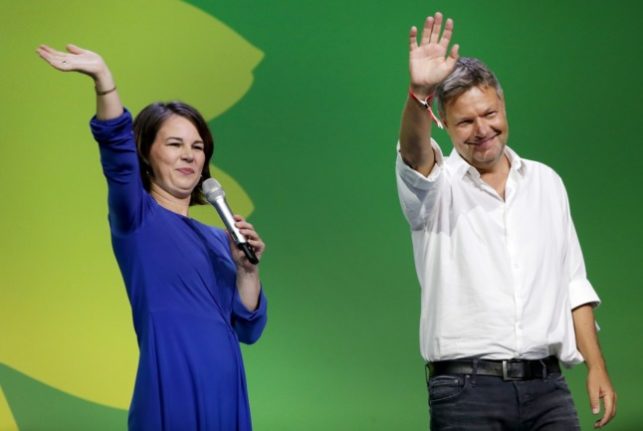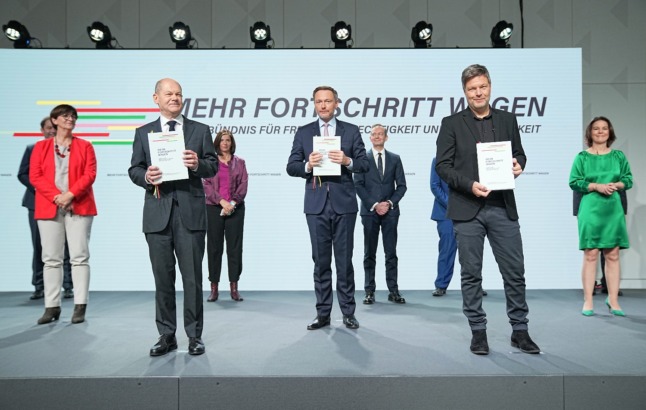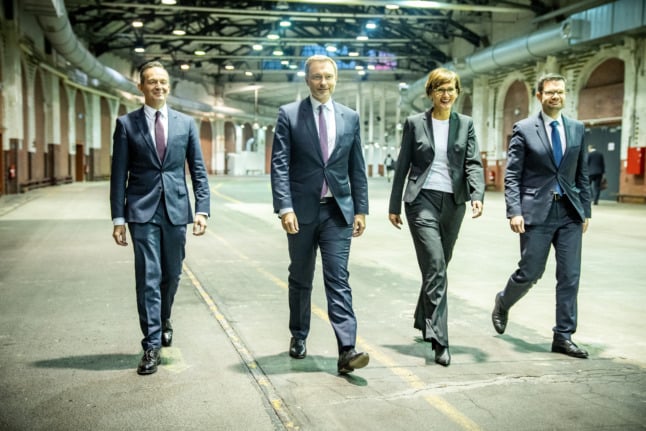Nearly 47 million Germans (out of the 60.4 million eligible) went to the polls on Sunday to elect a new government. But there were many people who didn’t get the chance to have a voice – like those without German passports who are living, working and paying tax in the country.
There are an estimated 10 to 11 million people living in the country without German citizenship, and about 9.5 million of those are of voting age. If they were able to have their say in the election held Sunday (and turned out at the same rate as German citizens), perhaps around 5 to 6 million extra votes could have been cast.
A campaign called Wir Wählen (We Vote), which is calling for all German residents to have the right to vote, decided to hold a symbolic federal election.
They asked a group of 4,500 people to cast their vote. The symbolic federal election took place in 14 cities – Berlin, Mannheim, Aalen, Erfurt, Jena, Weimar, Aachen, Freiburg, Cologne, Magdeburg, Hannover, Trier, Dresden, Osnabrück.
The Green party came third in the actual German election – but the environmentalist party came out on top in the symbolic non-German vote with 29.4 percent. The Greens were followed by the centre-left Social Democrats and then the Christian Democratic Union (CDU). Die Linke (the far left party – got 16.2 percent.
The anti-migration Alternative for Germany (AfD), perhaps unsurprisingly received the lowest number of votes in the symbolic election – just 0.7 percent of the vote.
READ ALSO: Where do Germany’s political parties stand on dual citizenship and nationalities?

‘Strengthens democracy’
Wir Wählen says: “By casting their vote, the voters not only expressed their will for a suitable government, but above all their desire to make their political interests heard and to show that all citizens are equally entitled to basic democratic rights. Because whoever lives here belongs, regardless of their passport!”
When it comes to rights for foreigners in Germany, EU citizens who live here can vote in local elections. But non-EU citizens have no right to vote at all.
“Experience with EU citizens, who have had equal voting rights at the local level in Germany since 1992, shows that this strengthens local democracy and allows more citizens to participate at eye level in solving local issues,” says Wir Wählen.
“Citizens without a German or EU passport continue to be excluded from democratic decision-making, regardless of whether they have settled in Germany, pay their taxes here, work, study, have family and friends here and have been part of society for years or decades (16 years on average).
“The right to vote in local elections for the entire population strengthens social cohesion and democracy. Participation at eye level is the democratic answer to right-wing nationalism and exclusion.”
Wir Wählen says there are more than 5.3 million residents of legal voting age in Germany who have no right to vote in federal and communal elections because they do not have a German or an EU passport.
The campaign group tries to raise the issue of voting rights and aims to “motivate citizens with migration backgrounds to make use of their voting rights and invite residents who are not legally allowed to vote, to cast a symbolic vote in one of our symbolic polling stations.”
They use the same election procedure as the official election, and ballots are presented to the elected representatives.
The Green party’s Tareq Alaows, who wanted to be the first Syrian refugee to be elected in the Bundestag but stood down as a candidate earlier this year after he was targeted by hate speech and threats, said he backed the campaign showing how non-German residents would vote.
READ ALSO: Jamaica or Traffic Light: What’s next for Germany and what does it mean?
“These are the results of the symbolic election of people who do not have the right to vote in Germany,” he said on Twitter. “I hope that these results will be taken into account in the coalition negotiations.”
🇩🇪 Germany #btw21 : as negotiations to form a coalition are underway, this is how people who don't have the right to vote would have voted, if given the right 👇 https://t.co/USl2Ju2yN5
— Emmanuelle Chaze (@EmmanuelleChaze) September 29, 2021




 Please whitelist us to continue reading.
Please whitelist us to continue reading.
No major country in the world allows non-citizens to vote in National elections, and why should they? The National government of a country should be elected by the citizens of that country. If people want to vote so badly they should nationalise in Germany, or accept that they will have the right to vote in their country of origin, but the benefits of living long term in Germany, which one would assume is why they are here….
Wrong. Look at the UK, for example. Certain non-UK citizens can vote in UK elections.
> No major country in the world allows non-citizens to vote in National elections, and why should they?
For the same reason we pay taxes and obey the laws? Why should my taxes go towards long-term development of the country that does not involve me in the decisions about this development?
> If people want to vote so badly they should nationalise in Germany
It’s far from being easy (or fast).
I have no business voting in any country, but my own and I am merely stationed here in Germany and I pine for home. Still, had I been given even a small voice, I would like the FDP. The closest party in the USA to this one is the Libertarians. Fiscally conservative and socially liberal. We have a two party system in which people hardly ever solidly land in either, but have to pick a team anyways. I’m not sure if a winner takes all system is better or worse. A parliamentary system seems to given more people a voice, but nothing seems to change very fast. Interesting to watch different people’s work their democracies though.
I am confused by the title of this article. Should it not read “non-citizen residents” rather than “non-residents”?